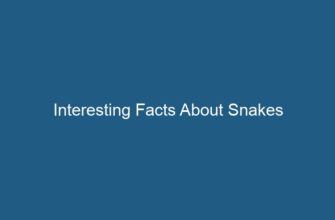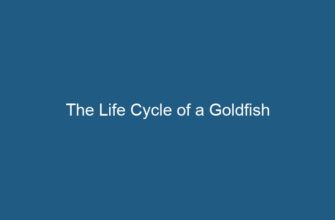Spiders are fascinating creatures that have been the subject of many myths and fears for centuries. One of the most common fears associated with spiders is the idea that humans unknowingly consume them in their sleep. While this claim may sound terrifying to some, it is important to separate fact from fiction. In this article, we will explore the truth behind the question: How many spiders does a person eat in their lifetime?
- Understanding Spider Consumption
- Scientific Studies on Spider Consumption
- VERIFY: Do you swallow spiders as you sleep?
- Do You Swallow Spiders While Sleeping?
- The Unavoidable Truth: Spider Ingestion
- Spider Consumption Numbers
- Spider Ingestion During Sleep
- Unintentional Spider Ingestion
- FAQs (Frequently Asked Questions)
- Q1: Can spiders crawl into your mouth while you’re awake?
- Q2: Are there any health risks associated with accidentally swallowing a spider?
- Q3: Do spiders lay eggs in food?
- Q4: How can I prevent unintentionally ingesting spiders?
- Q5: Are there any benefits to having spiders in our environment?
- Q6: Are there any spiders that are safe to eat intentionally?
- Q7: How can I overcome my fear of spiders?
- Q8: Can spiders crawl into other body openings apart from the mouth?
- Q9: Why are people afraid of spiders?
- Q10: Do all spiders make webs?
- Conclusion
Understanding Spider Consumption
Before diving into the numbers, it is crucial to understand how spider consumption may occur in the first place. The myth that humans consume spiders while sleeping stems from the fact that spiders are often found in homes, including bedrooms. However, the likelihood of actually ingesting a spider is quite low.
Spiders are generally not interested in humans as a food source. They typically prey on other insects and small arthropods, using webs or active hunting strategies to catch their meals. While it is possible for a spider to accidentally crawl into a person’s mouth while they sleep, it is highly unlikely to happen frequently or in significant numbers.
Scientific Studies on Spider Consumption
Despite the widespread belief that humans consume spiders regularly, scientific studies have shown otherwise. In 1993, a study conducted by arachnologist Paula Cushing debunked the myth by examining the contents of people’s stomachs after they died. The study found no evidence of spiders in any of the collected samples.
Another study published in the Journal of the American Medical Association in 1998 further supported these findings. The researchers analyzed 2,543 cases of people who accidentally swallowed spiders while awake. The study concluded that the incidence of spider ingestion was extremely rare and often resulted in no harm to the individuals.
VERIFY: Do you swallow spiders as you sleep?
Do You Swallow Spiders While Sleeping?
The Unavoidable Truth: Spider Ingestion
While the chances of purposefully consuming a spider are slim to none, it is essential to note that unintentional spider ingestion can still occur. This typically happens while eating food where spiders or their eggs may be present, such as fruits, vegetables, or grains.
However, it is important to keep in mind that the vast majority of spiders are harmless and pose no threat to human health. In fact, many spiders play a crucial role in controlling the populations of other insects, making them beneficial to have around.
Spider Consumption Numbers
Now, let’s delve into the numbers. While it is impossible to provide an exact figure for the number of spiders a person consumes in their lifetime, we can estimate based on available data.
Spider Ingestion During Sleep
As previously mentioned, the chances of consuming spiders while sleeping are incredibly low. Even if a spider were to accidentally enter a person’s mouth, the body’s natural reflexes, such as coughing or swallowing, would likely prevent it from being swallowed.
Considering the average hours of sleep per night and the average lifespan of a person, it is safe to assume that the number of spiders ingested during sleep over a lifetime is minimal, if any at all.
Unintentional Spider Ingestion
When it comes to unintentional spider ingestion through food, the numbers are also relatively low. Most spiders are too large to be consumed unknowingly, and their presence in food is uncommon.
However, it is important to note that smaller spiderlings or spider eggs may occasionally be present in food items. The chances of consuming these tiny spiders are still minimal, and they would likely pose no harm if ingested.
FAQs (Frequently Asked Questions)
Q1: Can spiders crawl into your mouth while you’re awake?
A1: While it is possible for a spider to accidentally crawl into your mouth while you’re awake, the chances are extremely rare. Spiders are generally not interested in humans as a food source and prefer to prey on other insects.
Q2: Are there any health risks associated with accidentally swallowing a spider?
A2: In most cases, accidentally swallowing a spider poses no significant health risks. The majority of spiders are harmless to humans, and their venom is not potent enough to cause harm through ingestion.
Q3: Do spiders lay eggs in food?
A3: While it is possible for spiders to lay eggs in food, it is relatively uncommon. Most spiders prefer to lay their eggs in protected areas, such as hidden crevices or egg sacs. The chances of finding spider eggs in your food are minimal.
Q4: How can I prevent unintentionally ingesting spiders?
A4: To minimize the chances of unintentionally ingesting spiders, it is essential to practice good food hygiene. Thoroughly inspect fruits, vegetables, and grains before consumption, and wash them properly to remove any potential spiderlings or eggs.
Q5: Are there any benefits to having spiders in our environment?
A5: Absolutely! Spiders play a crucial role in maintaining the balance of ecosystems. They help control populations of other insects, including pests that can damage crops or spread diseases. Having spiders around can reduce the need for chemical pesticides.
Q6: Are there any spiders that are safe to eat intentionally?
A6: While some cultures include certain species of spiders in their traditional cuisine, it is essential to exercise caution. Not all spiders are safe to eat, and some may have venomous properties. It is best to consult with experts or rely on trusted sources before consuming spiders as food.
Q7: How can I overcome my fear of spiders?
A7: Overcoming a fear of spiders, known as arachnophobia, can be challenging but is possible with the right approach. Gradual exposure to spiders in controlled environments, cognitive-behavioral therapy, and seeking support from professionals can help individuals manage their fears.
Q8: Can spiders crawl into other body openings apart from the mouth?
A8: While it is theoretically possible for a spider to crawl into other body openings, such occurrences are extremely rare. The body’s natural defenses, such as nasal hairs or tear ducts, make it difficult for spiders to enter these openings.
Q9: Why are people afraid of spiders?
A9: The fear of spiders, known as arachnophobia, is a common phobia that stems from various factors. It can be influenced by cultural beliefs, personal experiences, or a fear of venomous spiders. The fear is often disproportionate to the actual threat posed by spiders.
Q10: Do all spiders make webs?
A10: No, not all spiders make webs. While web-building is a common behavior among many spider species, some spiders use alternative hunting strategies, such as actively searching for prey or ambushing them. The diverse world of spiders offers a range of fascinating hunting techniques.
Conclusion
In conclusion, the idea that humans unknowingly consume spiders in their sleep is a myth that has been debunked by scientific studies. While unintentional spider ingestion can occur through food, the numbers are minimal, and the majority of spiders pose no harm to human health. It is essential to separate fact from fiction and appreciate the vital role spiders play in our ecosystems.










